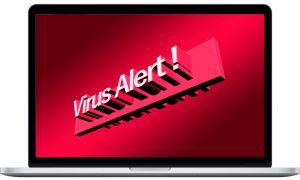When our computers start running slower or start to behave in unusual ways, like crashes and then it restarts every few minutes or disk drives are inaccessible we often suspect that we have a virus. It might not be a virus, but is likely you have some sort of malware. Some can be malicious and others can just be down right annoying. EagleRock Computer can help you clean up your computer if you suspect it is infected. Here are 10 tips on how to prevent malware from infecting your computer, keeping your computer virus free.
1. Install Anti-Virus/Malware Software.
This protection is a must-have first step in keeping your computer virus free. There are many computers, especially home computers, that don’t have adequate anti-virus/malware protection or none at all. EagleRock Computer recommends Sophos Advanced Endpoint Protection with Intercept-X. Contact us for more information.
2. Keep Your Anti-Virus Software Up to Date.
Having protection is the first step; keeping it up to date and active is the second. Free anti-virus is better then nothing, but not always the best solution.
3. Run Regularly Scheduled Scans with Your Anti-virus Software.
This may seem like an easy task to do, and it is, but most people forget to do this. You can set up your software of choice to run at regular intervals. Once a week is the preferred. With EagleRock Computer Sophos Advanced Endpoint Protection with Intercept-X scans are done regularly for you.
4. Keep Your Operating System Current.
Whether you are running Windows, Mac OS, Linux, or any other operating system, keep it up to date. Developers are always issuing security patches, these help keep your system secure.
5. Secure Your Network.
Many computers connect to our files, printers, or the internet. Make sure it requires a password to access it and that the password is strong. Never broadcast an open Wi-Fi connection. Sophos XG Firewall integrates perfectly with Sophos Advanced Endpoint Protection with Intercept-X to give you a powerful, flexible unified security and control.
6. Think Before You Click.
Do not open an email attachment from somebody or a company that you don’t know or was not expecting. If you have to download a file scan it before you run it. A good anti-virus software like Sophos Advanced Endpoint Protection with Intercept-X will do that automatically for you, but make sure it is getting done.
7. Keep Your Personal Information Safe.
This is probably the most difficult one to do on the internet. Many hackers will access your files through social engineering, “the use of deception to manipulate individuals into divulging confidential or personal information that may be used for fraudulent purposes“. They will continue from account to account until they have enough personal information. Be cautious on message boards and social media with the amount of personal information you share.
8. Don’t Use Open Wi-Fi Connections.
When you are at the local coffee shop, library, and especially the airport, don’t use the “free” open (non-password, non-encrypted) Wi-Fi. Think about it. If you can access it with no issues, what can a trained malicious individual do?
9. Back Up Your Files.
Back up your files – ALL of them. You should have your files (data) in at least three places; The place where you work on them, on a separate storage device, and off site. Call EagleRock Computer and ask us about our Managed Secure Automated offsite backup.
10. Use Multiple Strong Passwords.
Never use the same password, especially on your bank account. Use a strong password. Use lower case, upper case, numbers, and symbols in your password. Keep it easy to remember but difficult to guess. Do not use dates or pet names, this goes back to keeping your personal information safe!
